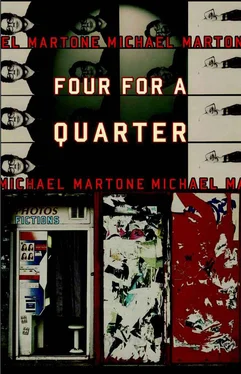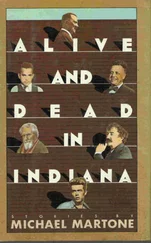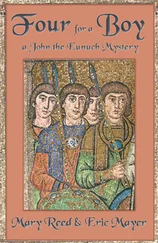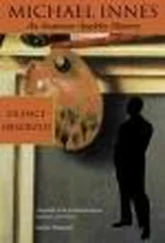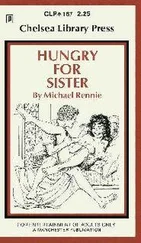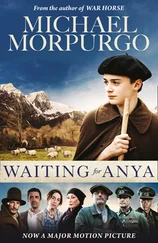Michael Martone - Four for a Quarter - Fictions
Здесь есть возможность читать онлайн «Michael Martone - Four for a Quarter - Fictions» весь текст электронной книги совершенно бесплатно (целиком полную версию без сокращений). В некоторых случаях можно слушать аудио, скачать через торрент в формате fb2 и присутствует краткое содержание. Год выпуска: 2011, Издательство: Fiction Collective 2, Жанр: Современная проза, на английском языке. Описание произведения, (предисловие) а так же отзывы посетителей доступны на портале библиотеки ЛибКат.
- Название:Four for a Quarter: Fictions
- Автор:
- Издательство:Fiction Collective 2
- Жанр:
- Год:2011
- ISBN:нет данных
- Рейтинг книги:3 / 5. Голосов: 1
-
Избранное:Добавить в избранное
- Отзывы:
-
Ваша оценка:
- 60
- 1
- 2
- 3
- 4
- 5
Four for a Quarter: Fictions: краткое содержание, описание и аннотация
Предлагаем к чтению аннотацию, описание, краткое содержание или предисловие (зависит от того, что написал сам автор книги «Four for a Quarter: Fictions»). Если вы не нашли необходимую информацию о книге — напишите в комментариях, мы постараемся отыскать её.
. In subject — four fifth Beatles, four tie knots, four retellings of the first Xerox, even the sex lives of the Fantastic Four — and in structure — the book is separated into four sections, with each section further divided into four chapterettes—
returns again and again to its originating number, making chaos comprehensible and mystery out of the most ordinary.
Four for a Quarter: Fictions — читать онлайн бесплатно полную книгу (весь текст) целиком
Ниже представлен текст книги, разбитый по страницам. Система сохранения места последней прочитанной страницы, позволяет с удобством читать онлайн бесплатно книгу «Four for a Quarter: Fictions», без необходимости каждый раз заново искать на чём Вы остановились. Поставьте закладку, и сможете в любой момент перейти на страницу, на которой закончили чтение.
Интервал:
Закладка:
I felt sad for that con. He spent his life building this. He never got it right. It wasn't big enough or something.
I walked right into the governor's office. I'm a taxpayer. And the lady told me he wasn't there, but I told her I was more interested in the desk. So she let me in. “It's beautiful, isn't it?“ she said, opening the curtains for the light that skidded across the top cut in the shape of the state. One edge was pretty straight and the other, where the river ran, looked as if it had melted like a piece of butter into toast. I ran my hand along the length of it, felt how smooth it was — the grain runs north and south — when the governor walked in with his state trooper.
“It's something,“ he said. He's a Republican. The trooper followed and stood behind him. “It has its own light.“
The trooper wore a sea blue uniform with sky blue patches at the shoulders and the cuff. Belts hung all over him. Stripes and creases ran down his legs. Braids and chains. The pants were wool. He watched me. And I looked at him.
Jesus, you've got to love a man in uniform.
I stepped up to the desk and saw my face and the shadow of my body deep inside the swirling wood. I took my finger and pointed to the spot not far from Zulu where I knifed a man and said, “Right there.“ I pushed hard with my nail. “That's where I was born.“
Board Games
PENNSYLVANIA
He was Grandpa Shaker because he shook, and when he died he stopped shaking. My great grandpa Shaker lived with his daughter Mary, my great aunt, until the day he died. I kept him company.
We played two-handed Rook with two dummy hands on a card table set up in the driveway during the summer. He had a glass straw that jangled against the ceramic mug. He breathed the milky coffee in and out, the straw clanking, while I turned over the cards. I could never understand the dummy hands and would have rather been playing four-handed hands with my friends in the park. In the park then, they let you play Rook because the four suits were colors — red, blue, green, black — instead of the hearts, clubs, diamonds, and spades that were forbidden because those suits were more real, I guess, and would promote gambling, poker among the kids. The Park Police actually checked the games, checked the cards.
The parks had pavilions that were staffed, and there on picnic tables, I played pickup games of box hockey, kalah, chess and checkers, and Rook that got played like poker anyway in secret.
As a kid, Shaker came north and worked for the Pennsylvania Railroad as a trackwalker. That was before my time and before he shook. We played euchre too at the table with another pair of ghosts partnering with us. Every hand you shot the moon. I never won. And we never talked.
When he walked track he walked from the Baker Street station east until he met the trackwalker coming from New Haven, and then he would turn around and walk back downtown, pass the station, out west toward Roanoke, and then turn back again. He did that twice a day every day for years. He looked at the spikes and cleats and ties and rail. He carried a pike and a mallet just in case, and some extra hardware in his pocket — date nails, pliers, joint bolts, and wire for the interlocking circuit. As he walked, he played a game with himself, counted ties, but his stride never matched the distance between the sleepers. There was oil and sand on the ballast and the rotting bodies of killed things with the clouds of flies bisected by the rails.
Monopoly was impossible outside. The wind stripped away the flimsy money, so we played it inside on rainy days and in the winter after school. We never played the rule that said you had to buy the property you landed on. Shaker liked to shake the dice and move around the board, avoiding jail and buying nothing. Doubles let you shake again. We had two dummy hands — the battleship and flat-stamped cannon — that moved from square to square as well. His hand shooed the lead steam engine around the board, from square to square, and during my turn Shaker nudged the glass straw between his lips, rattling like a machine. With his other hand, he tried to tap the accumulating money into neat stacks of color, but he only ended up shuffling denominations all together into one big pastel pile. Sooner or later, my mother came to get me and took me home. I waved good-bye. And he waved back with one hand shaking and the other hand shaking, shaking the dice for another roll, his turn, now, always next, and me, now, just an absent hand.
SHORT LINE
We rode backwards on the short line from Pirgos to the ruins at Olympia along a stub-end track with no place to turn around. The dumpy station disappeared behind us. All of Pirgos was a ruin, ruined by earthquakes every other year or so. What remained were concrete boxes sprouting rusting rebar on the spoiled roofs. In the waiting room there, we played backgammon in the dust and gloom and ate grilled cheese pies. The stationmaster made clumsy passes at the Swedish students, insisted each should wear his hat while he sang the island songs of Yanni Parios playing too loud on the mistuned radio.
We were going in reverse to Olympia. The cars were blue, of course, and on the curves we could see behind us the black donkey engine pushing us along at a walking pace. Olympia was filled with motor coaches hauling tours that included breakfasts each morning of the trip. So dawn found us at the site before the crowds finished their portokalada as the guards, who spend the night onsite, were just waking up and stowing their bedding near the gate.
The place was deserted. Everyone at breakfast. The stones on the ground were where they tumbled, after some other earthquake, into the mudflats the river left behind when it was shaken out of its course. In the middle of what was left of a temple, a tiny Greek church had been plopped down a few centuries ago and was the only thing left standing in the precinct, a token. Falling from the eaves and windowsills, swallows circled above a red tiled roof and then skipped out over the field of debris, the stumps of fallen fluted column drums, the marble just beginning to catch the light.
B&O
I let him play at the piano — my niece's boy, I had no sons — when I visited my sisters in Garrett. I drank iced tea with my sisters in the kitchen and told them jokes and shot the breeze to distract them from thinking about the kid in the parlor, noodling discordant, off-key keys on the out-of-tune upright Kimball. Nobody there plays. Everything in the parlor could break, the crystal and the porcelain, the glass and the wood. Soon, when my sisters couldn't sit still any longer, they flew past me to the parlor and made the boy sit still on the davenport. They gave him the cigar box filled with the postage stamp — sized receipts the paperboy left after he collected for the week of whatever. The tiny dates were printed on each — there were a lot of weeks. They wanted him to sort the bits of paper for them for no reason.
I got him to come up from Fort Wayne telling him we would look at the old steam engines. The B&O has a roundhouse in Garrett, a Division Point shop, and now he winds up here, trying not to move. I wanted company and an excuse to leave after I had performed my obligation to my sisters — three of them — who still live in the family place not that far from the main line.
I worked nights in the power plant in Fort Wayne, City Light and Power. I managed steam mostly, moved it from one turbine to the next, tapped it from the boilers, vented it outside, blew the whistle at times of my choosing. The cold engines of the B&O, black and big as buildings, were being scrapped, and a couple guys I knew from high school let us watch them disconnect the giant steel shafts from the driving wheels, knocking the locking bolts loose with a metal sledge that drew sparks. They stripped the copper wire clean, disconnected the bells and running lights. I showed the kid the platform on the gap-toothed pilot where the firemen of old would leap from to throw switches out ahead of the panting, drifting engines slowly catching up. He jumped up on the step, then on and off for a time, and climbed the catwalk the rest of the way to the cab. The firebox was choked with ashes, and the stuffing from the engineer's seat was leaking desiccated foam rubber sand on the tread plate floor. There were twenty some hulks in the dingy house. The big window wall, gritty with old smoke, filtered the weak light onto the dirt floor sown with cinder.
Читать дальшеИнтервал:
Закладка:
Похожие книги на «Four for a Quarter: Fictions»
Представляем Вашему вниманию похожие книги на «Four for a Quarter: Fictions» списком для выбора. Мы отобрали схожую по названию и смыслу литературу в надежде предоставить читателям больше вариантов отыскать новые, интересные, ещё непрочитанные произведения.
Обсуждение, отзывы о книге «Four for a Quarter: Fictions» и просто собственные мнения читателей. Оставьте ваши комментарии, напишите, что Вы думаете о произведении, его смысле или главных героях. Укажите что конкретно понравилось, а что нет, и почему Вы так считаете.
